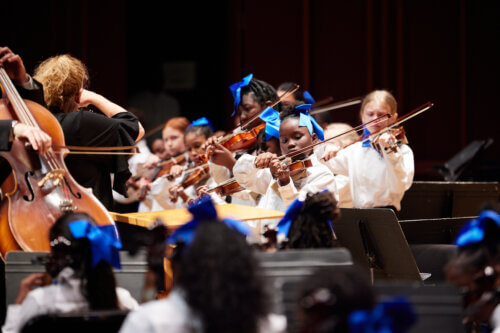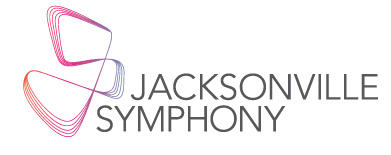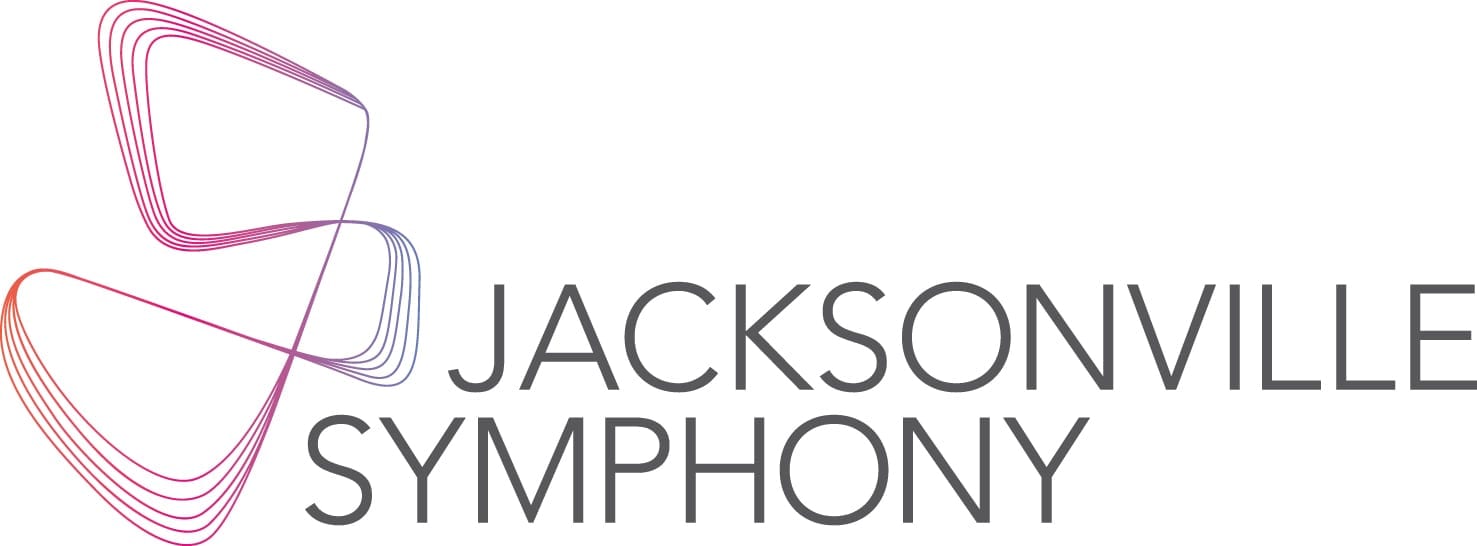Dr. Marianne Rice, Vice President/Music Education & DEI Initiatives

It’s Tuesday and students have arrived at Jacoby Symphony Hall to attend a Jacksonville Symphony Youth Concert. As the school buses line up on Water Street, students exit the buses with many emotions ranging from excitement to nervousness. Students from Northeast Florida and Southeast Georgia are dressed in an array of colors, sporting school uniforms or matching T-shirts that represent the teacher’s class and school. For many students, this is their first time coming to the Symphony or even a live musical performance.
Teachers and Symphony staff members work collaboratively to assist and guide students into the lobby. Students are greeted with smiles and “Hello, welcome to the Jacksonville Symphony,” from the volunteer ushers. As they enter the lobby, the sounds of, “Wow! This is big,” and “This is my first time here,” are heard. Finally, they enter Jacoby Symphony Hall, and with amazement, they see Symphony musicians and hear the many sounds of instruments tuning.
By providing equitable access to music education programs, the Jacksonville Symphony’s mission is to enrich the human spirit through symphonic music. District leaders have taken steps to ensure students have continued access to music education. As such, administrators and teachers are becoming resourceful by partnering with community organizations. Because of partnerships with community stakeholders, students are given the opportunity to explore and experience social-emotional learning through the world of music.
The Social Learning Theory by Albert Bandura (1979) is a holistic view of understanding students’ education and provides the foundation of social-emotional learning. According to Bandura, the Social Learning Theory is driven by several developmental factors, such as behavior as well as cognitive, personal (emotional) and environmental factors. The idea of Social-Emotional Theory explores the influential impact of social behavior, which explores human connection through self-discovery. Because of a contemporary approach to music education focusing on the total child, the Jacksonville Symphony is implementing holistic educational practices that promote academic growth and life learning. There are beneficial outcomes of social-emotional learning in music education as it provides social and cognitive skills essential for student academic growth. For instance, when social-emotional learning is included in music education, students learn skills that can equip them for the many challenges they may face. The inclusion of social-emotional learning in music has other positive academic outcomes such as increasing language and math skills.
The Jacksonville Symphony’s music education programs are designed with the whole child in mind to support learning through social-emotional and cognitive practices in addition to literacy, math and science. Our wide-reaching music programs provide educational opportunities for the community and beyond. Throughout the season, the Symphony presents Youth Concerts for students where teachers are provided interactive lessons with instructional activities designed to increase student academic and social growth. We also have programs for students to actively participate in music themselves such as our Jacksonville Symphony Youth Orchestras (JSYO) that serve more than 230 young musicians from all over Northeast Florida through six levels of ensembles–two full orchestras and four levels of string ensembles–that vary by repertoire and technical advancement. On top of that, we offer Ensemble School Visits where our musicians travel to schools and perform for students; the Jump Start Strings After School Music Instruction Program that provides free instruments and weekly instruction to Title I elementary school students; select First Coast Nutcracker performances that expose students to the collaboration of symphonic music and ballet; Students at the Symphony concerts that offer free or discounted tickets for middle and high school students and their teachers to the Symphony’s Coffee Concerts; and Young Artist Workshops during which JSYO Music Director and Assistant Conductor holds working sessions with students on repertoire, mini-masterclasses, mock adjudications and more.
Incorporating social-emotional learning in music education must be intentional and student-centered. The purpose of social-emotional learning is to create a transformative experience for student learning. When students attend a symphonic concert or participate in one of our programs, the experience extends beyond the classroom. Music is representative of life that connects students socially, emotionally and cognitively. Therefore, through the artistic expression fostered by symphonic music, students’ lives are enriched, uplifted and inspired in boundless ways, paving the way for more connected communities and a better future.
Reference
Bandura, A. (1979). Self-referent mechanisms in social learning theory. The American Psychologist, 34(5), 439-441.

